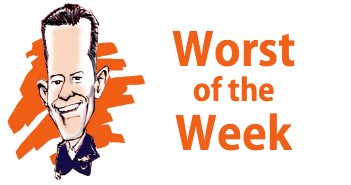Unlimited data is back, with Verizon, AT&T, Sprint and T-Mobile all going ape over the new marketing opportunity, to the benefit of consumers.
Hello! And welcome to our Friday column, Worst of the Week. There’s a lot of nutty stuff that goes on in this industry, so this column is a chance for us at RCRWireless.com to rant and rave about whatever rubs us the wrong way. We hope you enjoy it!
It is now officially on like Donkey Kong!
Only this time in real life.
All of the country’s largest operators have now thrown good sense and years of public training out the window in the name of “unlimited” data. And even better, they are all in a sort of pricing war over it.
The biggest barrel to drop was Verizon Wireless, which after years of claiming there was no business model for unlimited LTE data usage and continuing to squeeze consumers from grandfathered plans, finally relented with not only again offering up an unlimited plan but doing so at an aggressive price point.
This move followed T-Mobile US and Sprint both going all in on unlimited data plans last year and to some extent AT&T packaging an unlimited data offer for customers also selecting its DirecTV service. The first two have since been very vocal on the awesomness of their unlimited plans, with AT&T having also kept a running count of customers picking up their unlimited offer.
Thus, Verizon Wireless seemingly had to relent, especially as its past few quarters have shown a dramatic slowdown in the number of net postpaid additions, which have been the bread-and-butter of the carrier’s operations for years. I am also going to assume there was no connection on the timing of the announcement and the recent retiring of long-time CFO Fran Shammo, who had been the voice of the carrier’s “we are not bringing back unlimited data so quit asking” campaign.
In terms of AT&T’s broader push back into the unlimited data market, I have to give the carrier credit for taking a more modest approach in terms of pricing. AT&T was the first operator to pull back from the initial unlimited edge as its exclusivity agreement with the first run of Apple iPhone devices caused havoc on its ill-prepared network. I am sure that network is more robust today than it was 10 years ago, but it’s good to see a carrier use some caution despite the frenzy going on around it.
This approach is also embedded in all the new unlimited offers, with carriers throwing out various usage limits that once surpassed call for the ability to throttle network speeds should a data-hungry customer get to attached to an overburdened cell site.
Though this does seem to go against some of the initial claimed benefits of higher-speed networks in being able to allow customers quicker access to their services that should then get them out of the way for other customers to be served. The current model means customers on a heavily congested tower will either spend more time trying to access their content or have such a poor experience they become frustrated with their carrier. Neither seems like an ideal solution.
As for those customers, these unlimited moves by operators highlight the notion that they have, do and will always favor something termed “unlimited” even if it’s not really unlimited. All data seems to indicate only a small fraction of users really need more than five or 10 gigabytes of cellular data per month, but we have been trained to always pick the beverage size with unlimited refills.
I think, more importantly, the aggressive price points that have come with these latest moves shows how competitive the cellular market is with its current four nationwide operators. How long that will continue is anyone’s guess.
As an example, Sprint’s offer of five lines of unlimited service for just $90 per month is crazy. I did a quick search of the RCR Wireless News archives and dug out this little nugget from a decade ago of Sprint rolling out launching unlimited plans priced at $120 per line for the base plan, or $150 per line for unlimited mobile hot spot access. Those were the days!
The only real loser in all of this is will be investors who are likely to see 11-digit quarterly revenue numbers fall to just 10 digits. Oh the humanity!
For the rest of us, let’s instead bask in the glory of this new pricing war that is more fun than a barrel of monkeys. These things don’t often last for long, so let’s enjoy it while we can.
Thanks for checking out this week’s column. Here’s a quick extra to get you through the weekend:
–Mad props to The Linux Foundation this week for consolidating some of their open source organizations, and more importantly consolidating their overabundance of acronyms.
The move will see the merger of ECOMP and Open-O into the more letter efficient ONAP. What do all of those mean? I’m not really sure, though I think the Biz is all in favor.
Of just slightly less importance is that at least one segment of the telecommunications space may have realized we were running out of suitable acronyms and decided to do something about it.
I welcome your comments. Please send me an e-mail at dmeyer@rcrwireless.com.
Bored? Why not follow me on Twitter.

